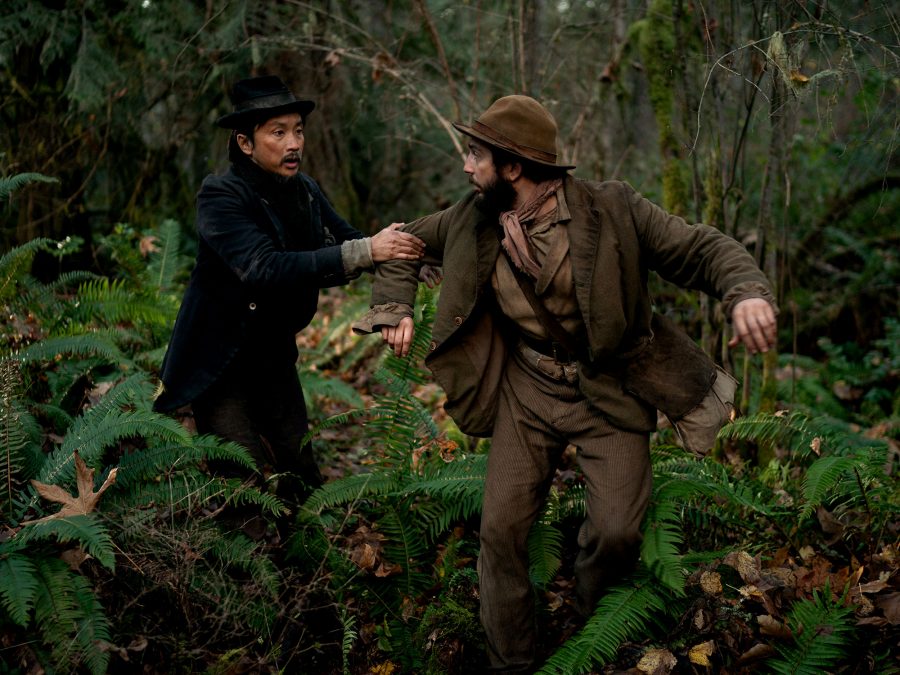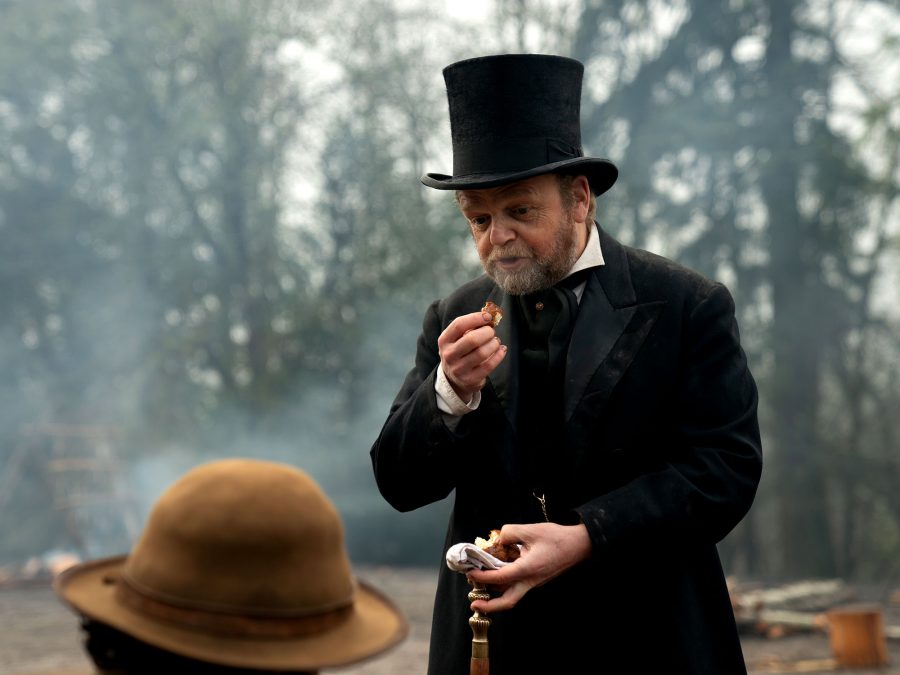In the year of our Lord 2008, I was a victim of subtweeting before the term had entered into the popular lexicon. For those who remain blissfully unaware of the word’s origins, it’s essentially a form of stealth criticism whereby one is called out for an opinion or action taken, but remains unnamed, allowing for a level of “blind item” anonymity to those not in the know. As a wide-eyed journalistic lickspittle, I had been commissioned to review the film Wendy and Lucy by the director Kelly Reichardt for the pages of hallowed arts listing organ, Time Out London.
At that time, and under the auspices of a, shall we say, “wacky” new editor-in-chief, Time Out no longer rated art out of the traditional five stars. Now things were out of six. The malformed guiding principle behind this decision was that the final sixth star equated to something otherworldly and unique – an example of untrammelled genius, never to be repeated or replicated. So astounded was I by Wendy and Lucy’s portrait of a young woman foundering on the precipice of the American margins, I decided to cash in all my chips and lay down for the big one: six shining yellow stars. It was a very big moment. Being able to proselytise about this film in such a hyperbolic manner made me feel alive. Sometimes, it’s what makes this game worth playing.
Yet the high was short-lived. Three days after the review appeared in print, I found myself surfing the salmon-pink pages of the Financial Times, whose film critic at the time was the august and unpredictable Nigel Andrews. I had long been a fan of his writing. His reviews were like dainty little diary entries where literary flourishes adjoined neatly with hyper-articulate analysis (he is now retired). He did not like Wendy and Lucy at all. His archly dismissive review compared it to sentimental slush like Lassie Come Home. His coup de grace was to call out the critic at Time Out (me) for reckless mismanagement of the time-honoured star system, and for drastically overrating what he considered to be a textbook example of American indie mediocrity.
Let me first say that this anecdote is not intended as an act of retribution or late-game bitterness: then, as now, it was water off a duck’s back. If anything, I was flattered that this legendary critic was reading my words. Sometimes you can be made to second guess a judgment, maybe through a conversation, or reading other criticism, or perhaps as a result of your naturally maturing and expanding definition of personal taste. For a long time I wondered whether I had overrated the film, to the extent that I was a little scared to rewatch it. What if my youthful zeal was misplaced? What if Nigel Andrews was right?

Upon belatedly rewatching Wendy and Lucy, not only were my paranoid fantasies instantly debunked, but in fact the film was even more rich and sad than I’d initially supposed. A seven star film, if you will. This should have come as no surprise, as in the intervening years, Reichardt has delivered one extraordinary film after the next, nary leaving so much as a perfectly calibrated frame out of place. The lovely term “pocket symphonies” is often used to describe the music of the Beach Boys, and it also applies to Kelly Reichardt’s cinema.
Via extremely modest means and assiduous cinematic construction she is able to whip up melodious, sweeping and tactfully political dramas which cut deep into the often-challenging experience of living, working and thriving in America. They are the small formal acorns from which tall thematic oaks grow.
Her latest film, First Cow, is a hushed, intimate, heartbreaking story about nothing less than the birth of modern America. It is the thoughtful, bookish cousin to Martin Scorsese’s mythically-inclined fisticuffs aria, Gangs of New York, from 2002 (with a dash of 2012’s The Wolf of Wall Street thrown in as well) but this actually manages to do and say a lot more with a lot less.
For Reichardt and her trusty co-screenwriter Jon Raymond (their fifth collaboration), it is about two men who find themselves unwittingly at the centre of a push for American cultural expansionism and a nascent form of supply and demand economics. And as usual, Reichardt is interested in the concept of the dashed dream, and particularly how the promise of those dreams usually arrives laced with peril and degradation. We only see folly when it’s too late.
“Via extremely modest means and assiduous cinematic construction, Reichardt is able to whip up melodious, sweeping and tactfully political dramas.”
At its core, First Cow is the tall tale of two pals who decide to capitalise on a collective yen for sweet baked comestibles among the members of their Midwestern fur-trapping community circa 1820. Otis ‘Cookie’ Figowitz (John Magero) is a lovably effete baker’s apprentice displaced to the Oregon wilds where he works as a commercial food scavenger. While rustling through the brush in search of sustenance, he finds a naked Chinese man, King-Lu (Orion Lee), who is on the run from some Russians.
Cookie helps out King-Lu, and when they later reconnect, Cookie becomes King-Lu’s houseguest in his idylic woodland shack. As in the famous ‘A Woman’s Touch’ scene from the Doris Day western-themed musical, Calamity Jane, gender roles are furtively assigned among this same-sex twosome and a genteel domesticity is formed, with Cookie dusting and baking, and King-Lu foraging and chopping.
Beyond our central pair, every member of the ensemble hails from a different part of the globe. This choice hasn’t been made to emphasise discord: quite the opposite. Reichardt is more interested in stressing common ground among this ethnically diverse enclave, with these pitiable characters either yearning to be transported back home, or keen to exist (and persist) as a far-flung totem of national character. Toby Jones’ stovepipe-hatted English popinjay, Chief Factor, takes a bite of fresh oily cake, glances to the middle distance and exclaims in almost teary-eyed exultation: “This tastes likeLondon.”
The cow referred to in the film’s title is another of Factor’s little home comforts, allowing him to have a dainty splash of milk in his tea. Cookie and King-Lu have other plans, as they sneak into his meadow at night and extract the milk for their own nefarious means, namely producing rudimentary baked goods for the hungry fur trappers to waste their money on. Prior to their scheme, King-Lu makes the offhand comment that all successful businesses are based upon some aspect of criminal endeavour, and this apparent joke seals the friends’ fate before ingredients have first been combined.

The docile cow is a symbol of wealth and success, and also represents the possibility of progress. Aside from Lily Gladstone’s bemused First Nation translator, the cow is the only other female character in the film, and Reichardt very subtly presents her as being the subject of a very blithe form of male exploitation. As Cookie lovingly extracts the cow’s milk in the light of the moon, he coos sweet words to her and talks to her like a nervous John might to do an experienced Madame. It is through a bout of violent jealousy that our heroes are eventually scuppered, and the film switches from a tone of hushed comic frivolity to an almost fugue-like death rattle.
Within Reichardt’s immaculate canon of films, First Cow does have something of a megamix quality to it: there’s the bashful male kinship of 2006’s Old Joy; the idea that we can overreach even the most humble of personal ambitions as articulated so poignantly in 2008’s Wendy and Lucy; there’s the perfume of violence that hung in the air during the pioneer days from 2010’s Meek’s Cutoff; and the idea of crime being justified by a destabilised form of personal morality in 2013’s Night Moves.
I often see Reichardt’s films as all being about the struggles of being an independent artist, and the roadblocks that come from prizing originality and trying to work off of the mainstream grid. In the story of Cookie, King-Lu and their beloved but illicit treats, the metaphor works once more. And at the same time as being part of this close-knit cinematic family, the film is entirely unique: a shaggy cow saga one minute; a treatise on class, ethnicity and the mechanisms of capitalism the next; and then, in its final moments, a rumination on how storytelling, cinema and a curiosity in the past is the only practical way of keeping the dead alive.
ANTICIPATION.
A new film from one of the best directors currently working? Yes please! 5
ENJOYMENT.
A simple story of a gentleman baker that channels the danger and excitement of early capitalist endeavour. 5
IN RETROSPECT.
It’s a McCabe & Mrs Miller with cows, and there can be no higher praise than that. 5
Directed by
Kelly Reichardt
Starring
Toby Jones, Orion Lee, John Magaro
The post First Cow appeared first on Little White Lies.
![Forest Essentials [CPV] WW](https://s3-us-west-2.amazonaws.com/pcw-uploads/logos/forest-essentials-promo-codes-coupons.png)
0 comments